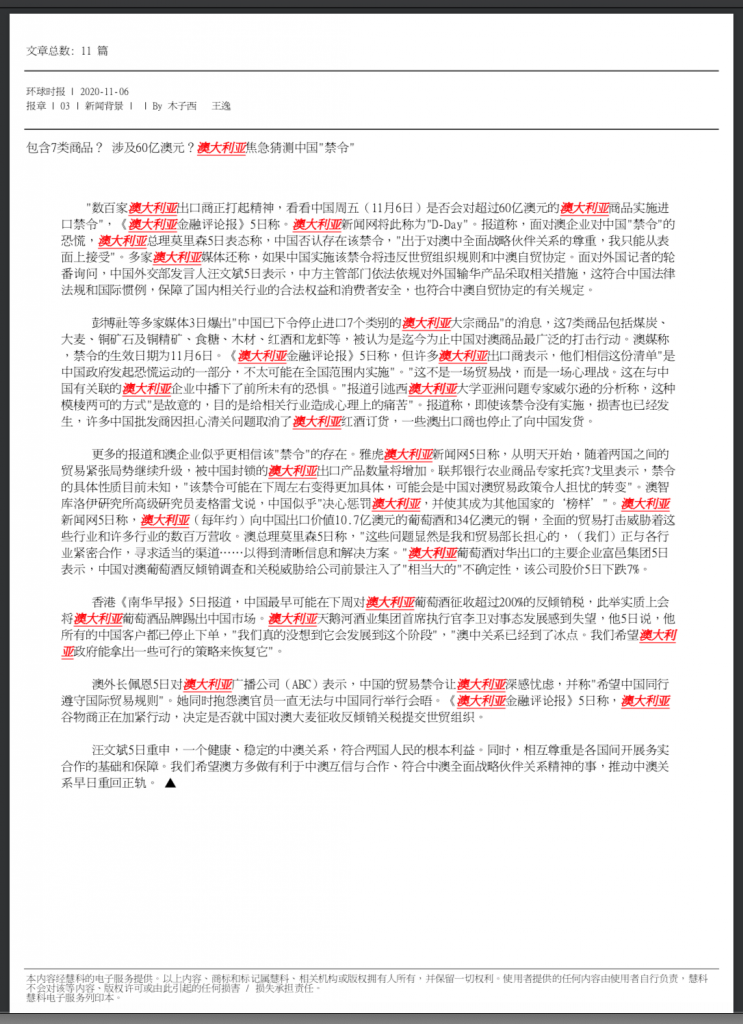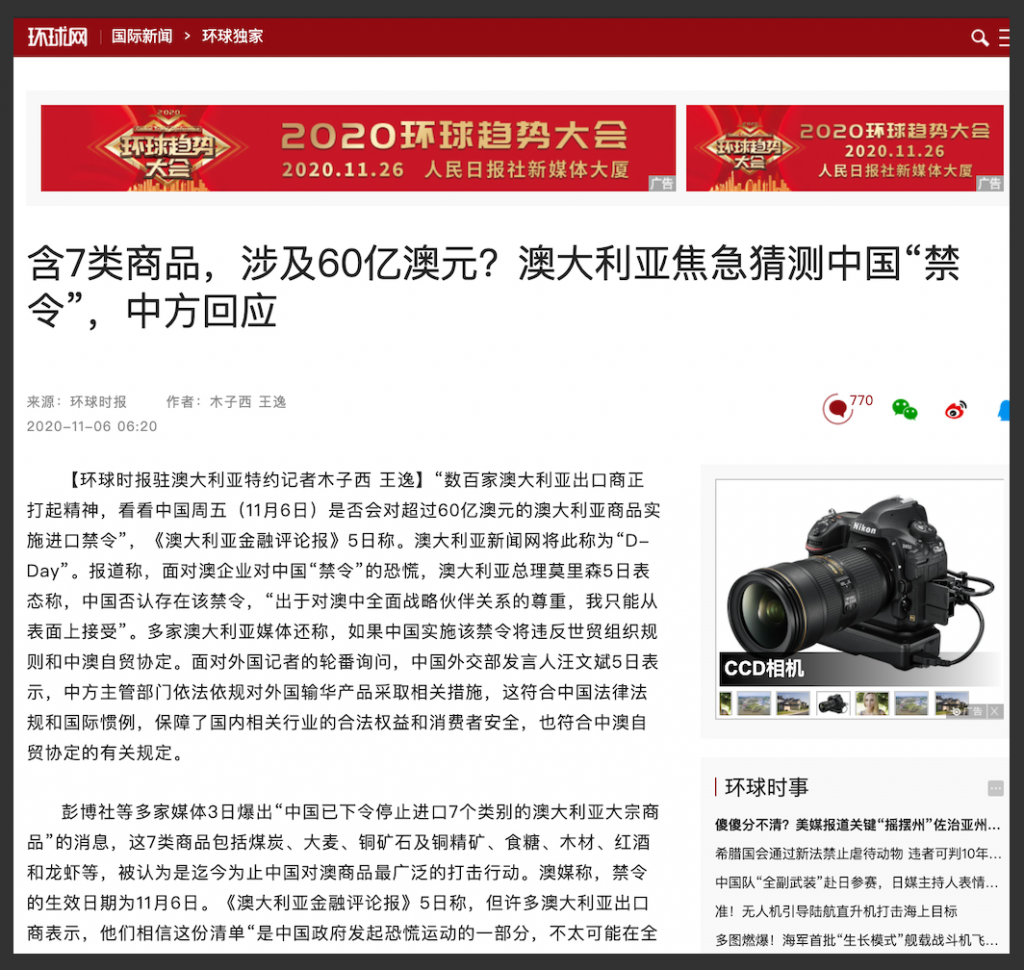
“Canberra only has itself to blame,” read an commentary yesterday from the China Daily, the newspaper published by the Information Office of China’s State Council, the administrative office in charge of its external propaganda. The commentary came amid news that China plans to suspend seven types of Australian exports, including wine and coal, a decision that has caused an uproar in Australia.
Observers outside China noted that the unilateral restrictions, coming amid dramatically worsening relations, underscore China’s willingness to leverage economic pressure to oppose countries that challenge its interests. But there is another curious dimension to this latest move – the striking lack of coverage of the restrictions in China’s own media.
As ABC Australia reported yesterday, news of the export suspensions was relayed not by China’s government directly, but by the tabloid Global Times, a commercial spin-off (known for its nationalistic saber-rattling) of the Chinese Communist Party’s flagship People’s Daily newspaper. While the Foreign Trade Department of China’s Ministry of Commerce reportedly summoned Chinese importers earlier in the week to notify them of the changes, no public announcement was made by the ministry.
China’s only official acknowledgement so far came yesterday in a press conference held by the Ministry of Foreign Affairs. Asked about the Australian restrictions by a reporter from Bloomberg, spokesperson Wang Wenbin responded:
As for the Australian exports to China that you asked about, we responded to similar questions on multiple occasions. The Chinese competent authorities’ measures on foreign imports are in line with Chinese laws and regulations and international customary practices. They protect the safety of consumers and the legitimate rights and interests of domestic industries, and are consistent with the free trade agreement between China and Australia.
But how has this major trade story – seeing as it concerns, as Wang said, “the safety of consumers and the legitimate rights and interests of domestic industries” – been reported inside China? This is where things become curious, and revealing.
Presumably, restrictions impacting billions of dollars of imports with a major trading partner would at the very least make business headlines. But a search of news archives since November 1 using the keyword “Australia,“ covering several hundred mainland Chinese newspapers, turns up just 10 news articles dealing with the unilateral restrictions.

Of these 10 articles, 7 are directly from the English (5) and Chinese (2) editions of the Global Times. The remaining three articles, it turns out, are also from the Global Times, but are re-published at the website of Ningxia Daily, the official CCP flagship paper in Ningxia, at Shenzhen Special Zone Daily (深圳特区报), an official CCP daily in the Shenzhen SEZ, and Newspaper Digest (报刊文摘), a publication of Shanghai’s official Liberation Daily. Meanwhile, searches of keywords like “Australia” and “7 products” on Google turn up overseas results in Chinese about the restrictions, but nothing in major or minor publications inside China, including speciality business-related websites.
The most recent news report on the bilateral trade row, appearing today in the Global Times, is a play-by-play account of accounts in the Australian and other media outside mainland China – in the Australian Financial Review, in Hong Kong’s South China Morning Post, at ABC Australia.

How do we account for this strangely unilateral media conversation? Why is this major trade story, understandably sparking concern in Australia and beyond, the exclusive prerogative inside China of a single newspaper, the sole exception being English-language coverage in the official newspaper (China Daily) of the government department dedicated to external propaganda?
Despite Wang Wenbin’s suggestion that China’s aim in imposing these unilateral restrictions is to “protect the safety of consumers and the legitimate rights and interests of domestic industries,” the palpable silence in China’s own media, and the fact that the bulk of what little “coverage” is available is in English and directed at foreign readers, clearly suggests this is a naked act of retaliation. The lack of coverage would also seem to suggest that Chinese leaders do not wish to encourage public comment or controversy over the decision, or to air out the sensitive details behind the ongoing bilateral disagreement — involving as it does allegations of Chinese spying and overseas influence operations in Australia.




















